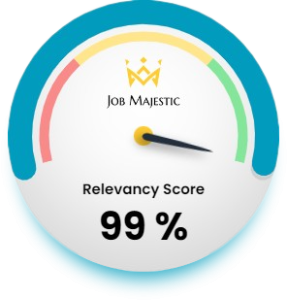In Malaysia’s competitive job market, candidates must strategically present their skills and qualifications to stand out. Among the key factors influencing employability is language proficiency. As an HR manager, I have observed that many applicants underestimate the importance of effectively showcasing their language skills on their resumes. A well-crafted resume highlighting language proficiency can significantly enhance a candidate’s appeal to potential employers, particularly in a multicultural and multilingual country like Malaysia.
The Importance of Language Proficiency in the Malaysian Job Market
Malaysia is a diverse nation where multiple languages are spoken, including Malay, English, Mandarin, and Tamil. The ability to communicate effectively in these languages can open doors to various career opportunities across different industries. Employers often seek candidates who can seamlessly interact with colleagues, clients, and stakeholders from different linguistic backgrounds. Demonstrating strong language skills on a resume not only increases employability but also enhances career growth prospects.
Many industries, such as banking, customer service, education, healthcare, and tourism, require bilingual or multilingual employees to cater to a broad customer base. Employers value candidates who can switch between languages fluently, ensuring smooth communication in both professional and client-facing roles. Hence, job seekers should prioritize articulating their language proficiency levels in a clear and structured manner.

How to Effectively Showcase Language Proficiency on Your Resume
A resume should present information concisely while providing employers with relevant details about your skills. Here are some guidelines on how to effectively showcase your language proficiency:
1. Create a Dedicated Language Proficiency Section
To ensure clarity, include a separate section for language proficiency. This section should be placed strategically, preferably below the skills or education section. Clearly state the languages you are proficient in and categorize them according to proficiency levels.
2. Use Recognized Proficiency Levels
When listing your language proficiency, avoid vague terms such as “good” or “fluent.” Instead, use recognized proficiency scales such as:
Native / Mother Tongue – If the language is your first language.
Full Professional Proficiency – If you can communicate effectively in professional and business settings.
Advanced / Fluent – If you can speak, write, and understand the language with ease.
Intermediate / Conversational – If you can hold conversations but may struggle with complex discussions.
Basic – If you have fundamental knowledge of the language but require further improvement.
Alternatively, you may use standardized frameworks such as:
Common European Framework of Reference for Languages (CEFR) – Ranging from A1 (Beginner) to C2 (Proficient).
International English Language Testing System (IELTS) or Test of English as a Foreign Language (TOEFL) scores.
Mandarin Proficiency Test (HSK) for Mandarin proficiency.
3. Align Language Proficiency with Job Requirements
Before listing language skills, analyze the job description to determine which languages are most relevant. For instance, if applying for a role in a multinational corporation, proficiency in English and Mandarin may be crucial. If the job requires frequent communication with local authorities, Bahasa Malaysia proficiency is essential.
4. Provide Evidence of Language Skills
If you have certifications or test scores to validate your language proficiency, include them. For example:
IELTS Score: 7.5
HSK Level 5 (Mandarin Proficiency)
CEFR: C1 in English Such evidence strengthens your claim and provides employers with measurable proof of your capabilities.
5. Highlight Language Skills in Your Experience Section
Besides listing proficiency levels, showcase instances where language skills were applied in previous roles. For example:
“Negotiated contracts with Mandarin-speaking clients, leading to a 20% increase in sales.”
“Provided customer service support in English, Malay, and Tamil, ensuring a high customer satisfaction rate.”
“Translated corporate documents from English to Malay, improving communication efficiency.”
Avoiding Common Mistakes When Listing Language Proficiency
While language proficiency can be an asset, certain pitfalls can undermine a candidate’s credibility. Here are some common mistakes to avoid:
1. Exaggerating Proficiency Levels
Candidates sometimes overstate their language abilities, leading to difficulties during interviews or job responsibilities. Employers may conduct language assessments, and failure to meet stated proficiency levels can harm professional credibility.
2. Neglecting Bahasa Malaysia Proficiency for Local Roles
Bahasa Malaysia is the national language, and proficiency in it is a requirement for many government and private sector jobs. Candidates who overlook this may lose opportunities in roles requiring official communication in the national language.
3. Listing Irrelevant Languages
While being multilingual is commendable, listing languages that are irrelevant to the job can clutter the resume. Focus on languages that align with job requirements and industry needs.
4. Failing to Update Language Skills
Language proficiency can improve over time with practice and additional learning. Candidates should regularly update their resume to reflect current proficiency levels and new certifications.

Conclusion: Enhancing Employability Through Language Proficiency
Mastering language proficiency on a resume is a strategic step toward unlocking job opportunities in Malaysia. By presenting language skills clearly and accurately, candidates can demonstrate their ability to communicate effectively in diverse work environments. Employers value multilingual candidates as they contribute to seamless business operations, improved customer relations, and expanded market reach.
In today’s globalized workforce, language proficiency is no longer just an additional skill, it is a necessity. Job seekers who strategically highlight their language capabilities stand a better chance of securing roles that align with their strengths and career aspirations. As an HR professional, I encourage candidates to leverage their linguistic abilities and present them effectively on their resumes, setting themselves apart in a competitive job market.
![]()






